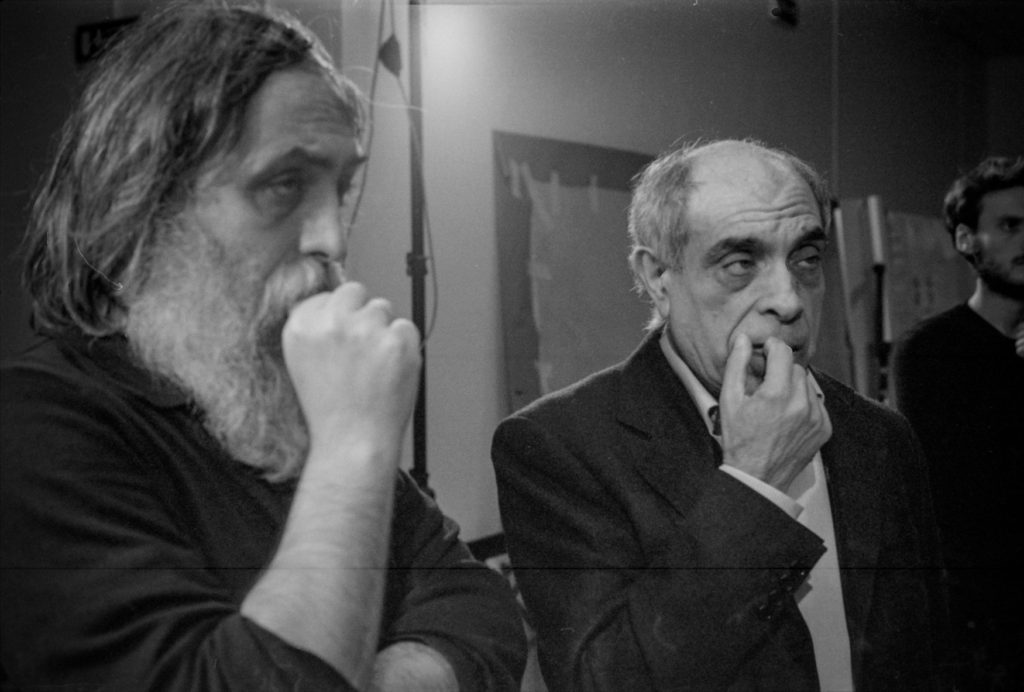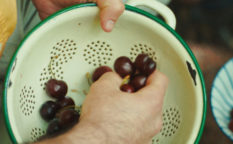Review: The Mafia Is No Longer What It Used to Be (2019), by Franco Maresco
What a strange and, frankly, indescribable viewing experience it is, right from its overly long title taken from an out of context line of dialogue fired by one of the film’s characters. But, knowing something about the filmography of the Sicilian satirist and documentarist Franco Maresco, The Mafia Is No Longer What It Used to Be might not seem that strange. The film premiered at the competition of 76th Venice International Film Festival scoping a jury prize and it should fare relatively well with the local and national audiences. On the international level, there is a prevalent risk that most of the film’s humour and insights would get lost in translation, and not necessarily in the linguistic sense of the term.

Before getting into The Mafia…, one should know that this one is a spiritual sequel to Maresco’s film Belluscone. Una storia siciliana (2014) in which he tried (and repeatedly failed) to expose the ties of the former Italian prime minister Silvio Berlusconi and Cosa Nostra due to his interviewees’ lack of willingness to say anything that would offend either of their heroes in politics and on the street level. Even though the filmmaker failed spectacularly to prove his thesis, the film served quite well as an absurdist take on Sicilian mentality dictated by the code of silence (Omerta) and the distrust towards the media.
He tries the same here but with less success, going that far to include the star from his previous film, the low-level showman, talent scout and musical promoter Ciccio Mira. This shady character, always shown in black and white (even when the rest of people he stands with are in colour) for the reasons unknown (probably some in-joke), is organizing a gig to commemorate the 25th anniversary of killing of the two Mafia-fighting judges Falcone and Borsellino with the programme consisting of B-grade singers of Neapolitan neo-folk songs. When asked by Maresco to persuade them to finish the show with any kind of gesture calling to resistance to the Mafia, Ciccio evades the subject, while his producer Matteo Mannino declines to comment and the performers keep repeating “I’m not interested”, which sounds eerily like the fascist slogan “I don’t care”.
But the film actually starts with Letizia Battaglia, the photojournalist known for photographing the grossest of the Mafia crimes and the subject of this year’s Kim Longinotto’s Sundance / Berlinale title Shooting the Mafia. She puts on her grumpy personality, stating that the only reason she accepted to be in the film is the promised role of an old whore in Maresco’s next, fiction project. Yes, she is that disillusioned with the state of things in politics and local mentality. Unfortunately, she remains underused, relegated to the role of Maresco’s sidekick of sorts and mere commentator of the absurd and the low-life milieu surrounding them.
It is not wrong to do some of the social activism through art by satirizing the political situation and pointing fingers at the absurd, but for that a filmmaker should at least have the idea what he is actually saying. And anniversary of the crime from the past as a general context is to vague if not used properly, which is the case here. The main trouble here is not simply a missed opportunity to make a statement or prove a point. It is not even the recycling of the topic from one of the filmmaker’s previous film or wasting the perfectly good characters. It is the complete lack of structure in thought and execution.
On the other hand, it could be just an elaborate joke by Maresco aimed at himself, his hometown and the lack of good will to break the usual cycles and narratives. For the most of the time, The Mafia… plays out like an immature, irritating documentary in which the filmmaker is present, especially in the interviews and as the narrator, trying and failing to make a point while antagonizing his subjects. The trick is that it is all on purpose, since Maresco is too good filmmaker for such lazy efforts and he shows it by using a variety of techniques (including animation for a memory sequence).
In the end, The Mafia Is No Longer What It Used to Be is a mixed bag, fun to watch at moments, but disjointed as a whole.
















